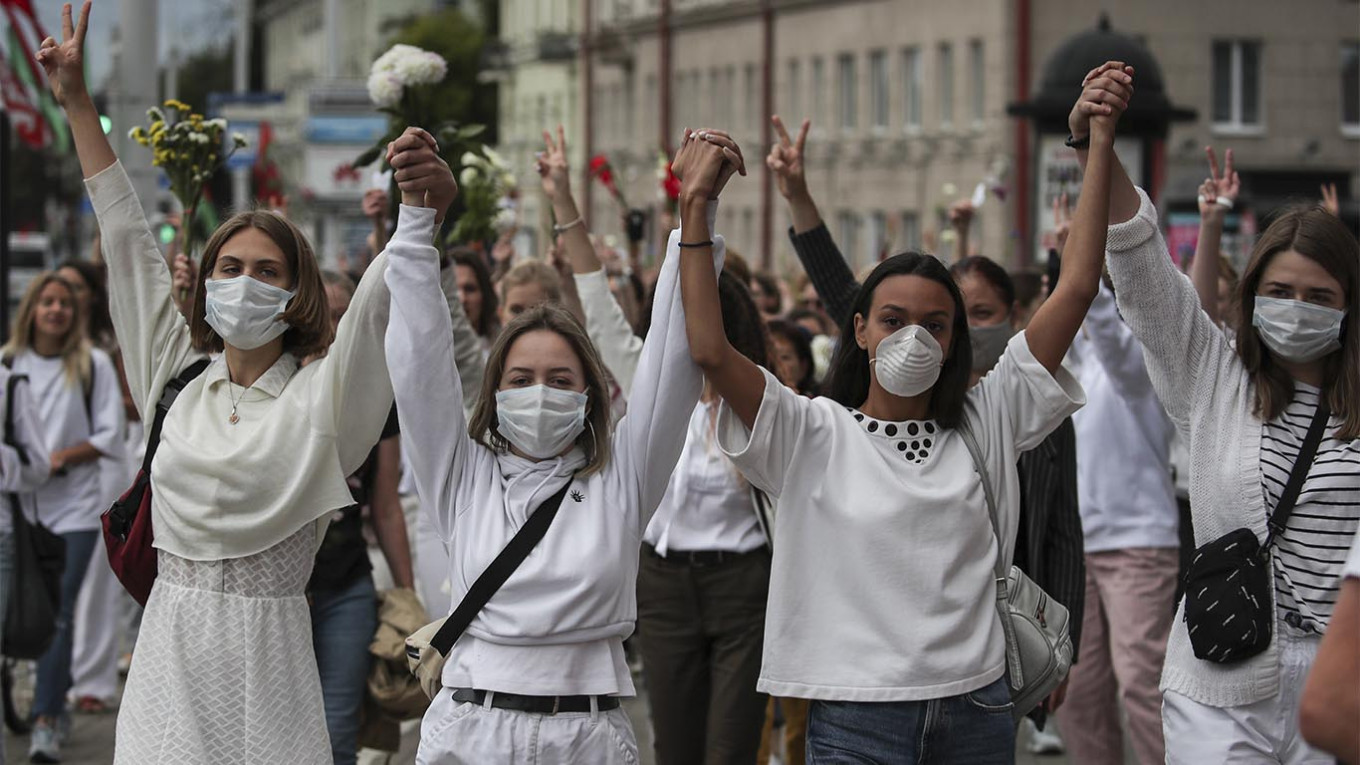
European Union ministers agreed Friday to draw up a list of targets in Belarus for a new round of sanctions in response to strongman Alexander Lukashenko’s post-election crackdown.
At a videoconference hosted by Brussels’ diplomatic chief Josep Borrell, the foreign ministers also agreed to take up the stand-off between Greece and Turkey at their next face-to-face talks.
As Lukashenko’s main opposition challenger called for mass weekend rallies to denounce the long-standing leader’s disputed claim of re-election, his western neighbors are stepping up pressure.
“The foreign ministers agreed to impose sanctions on those responsible for the repression and a list of names will be drawn up,” one European official said.
Sweden’s Foreign Minister Ann Linde said in a tweet that the “EU will now initiate a process of sanctions against those responsible for the violence, arrests and fraud in connection with the election.”
Once the list is finalized, each individual or entity on it will have to be approved unanimously by member states, but officials said none of the 27 raised objections to the idea of sanctions
Ahead of the meeting there had been calls for action from several EU members, especially Belarus’ neighbors Poland and Lithuania, which is now hosting exiled opposition candidate Svetlana Tikhanovskaya.
Poland, Latvia and Lithuania say they are ready to act as mediators to try to resolve the post-election crisis, after a poll that Brussels has already said was “neither free nor fair.”
Lithuanian President Gitanas Nauseda has spoken to Tikhanovskaya and, according to his spokesman, she is ready to help him implement a plan for “peaceful dialogue” to resolve the crisis.
Lithuania also on Friday offered to treat Belarusians injured during the protests and suggested setting up the EU fund to support “the victims of repression.”
Call for new vote
Poland announced 11 million euros ($13 million) in funding to help Belarusians get visas and finance their settlement in Poland, as well as support for independent media and non-governmental organizations in Belarus.
“We cannot put on a mask of indifference or neutrality at times like this,” Polish Prime Minister Mateusz Morawiecki told parliament.
Later, Morawieki’s office tweeted: “We call on the Belarusian authorities to consider holding new, free elections. They must be fair, with observers from other countries.”
Russia has implicitly criticized the EU response, denouncing what its foreign ministry spokeswoman called “clear attempts at outside interference… aimed at causing a split in society and destabilizing the situation.”
But Belarus’ Foreign Minister Vladimir Makei said in a call on Friday with his Swiss counterpart Ignazio Cassis that Minsk is ready “for a constructive and objective dialogue with foreign partners.”

Leave a Reply